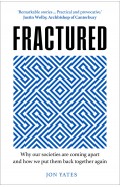The Closed Valley: With Fierce Friends in the Pakistani Himalayas
By: Jurgen Wasim Frembgen
-
Rs 760.75
- Rs 895.00
- 15%
You save Rs 134.25.
Due to constant currency fluctuation, prices are subject to change with or without notice.
| Book | |
| What's in the Box? | 1 x The Closed Valley: With Fierce Friends in the Pakistani Himalayas |
The Closed Valley: With Fierce Friends in the Pakistani Himalayas
By: Jurgen Wasim Frembgen
Rs 760.75 Rs 895.00 Ex Tax :Rs 760.75
Wrestlers, Pigeon Fanciers, and Kite Flyers: Traditional Sports and Pastimes in Lahore
By: Jurgen Wasim Frembgen
Rs 1,012.50 Rs 1,350.00 Ex Tax :Rs 1,012.50
'We are Lovers of the Qalandar': Piety, Pilgrimage, and Ritual in Pakistani Sufi Islam
By: Jurgen Wasim Frembgen
Rs 909.00 Rs 1,010.00 Ex Tax :Rs 909.00
Zubin Mehta: A Musical Journey (An Authorized Biography)
By: VOID - Bakhtiar K. Dadabhoy
Rs 892.50 Rs 1,050.00 Ex Tax :Rs 892.50
The God Who Failed An Assessment of Jawahar lal Nehru`s Leadership -
By: Madhav Godbole
Rs 845.75 Rs 995.00 Ex Tax :Rs 845.75
End of past: An immediate eyewitness history of a troubled nation
By: Nadeem Farooq Paracha
Rs 1,165.50 Rs 1,295.00 Ex Tax :Rs 1,165.50
The Origins of Political Order From Prehuman Times to the French RevolutioN
By: Francis Fukuyama
Rs 4,045.50 Rs 4,495.00 Ex Tax :Rs 4,045.50
The God Who Failed An Assessment of Jawahar lal Nehru`s Leadership -
By: Madhav Godbole
Rs 845.75 Rs 995.00 Ex Tax :Rs 845.75
End of past: An immediate eyewitness history of a troubled nation
By: Nadeem Farooq Paracha
Rs 1,165.50 Rs 1,295.00 Ex Tax :Rs 1,165.50
Fractured: Why Our Societies Are Coming Apart and How We Put Them Back Together Again
By: Jon Yates
Rs 1,947.50 Rs 3,895.00 Ex Tax :Rs 1,947.50
Bill Cunningham: On the Street Puzzle
By: New York Times
Rs 3,865.50 Rs 4,295.00 Ex Tax :Rs 3,865.50
What White People Can Do Next - From Allyship to Coalition
By: Emma Dabiri
Rs 1,015.75 Rs 1,195.00 Ex Tax :Rs 1,015.75
Zubin Mehta: A Musical Journey (An Authorized Biography)
By: VOID - Bakhtiar K. Dadabhoy
Rs 892.50 Rs 1,050.00 Ex Tax :Rs 892.50
The Closed Valley: With Fierce Friends in the Pakistani Himalayas
By: Jurgen Wasim Frembgen
Rs 760.75 Rs 895.00 Ex Tax :Rs 760.75
Wrestlers, Pigeon Fanciers, and Kite Flyers: Traditional Sports and Pastimes in Lahore
By: Jurgen Wasim Frembgen
Rs 1,012.50 Rs 1,350.00 Ex Tax :Rs 1,012.50
'We are Lovers of the Qalandar': Piety, Pilgrimage, and Ritual in Pakistani Sufi Islam
By: Jurgen Wasim Frembgen
Rs 909.00 Rs 1,010.00 Ex Tax :Rs 909.00
The God Who Failed An Assessment of Jawahar lal Nehru`s Leadership -
By: Madhav Godbole
Rs 845.75 Rs 995.00 Ex Tax :Rs 845.75
End of past: An immediate eyewitness history of a troubled nation
By: Nadeem Farooq Paracha
Rs 1,165.50 Rs 1,295.00 Ex Tax :Rs 1,165.50












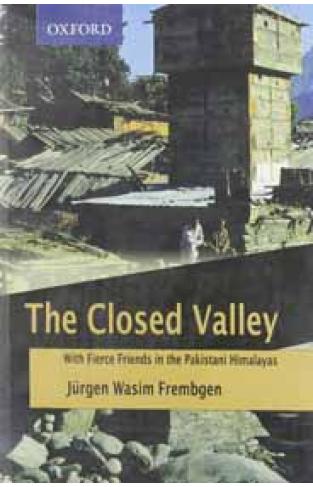
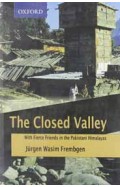

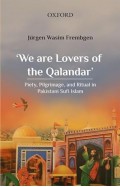
-120x187.jpg?q6)






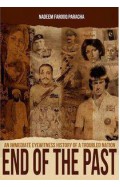
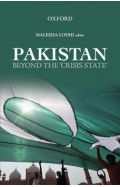





-120x187.jpg?q6)


-120x187.jpg?q6)
